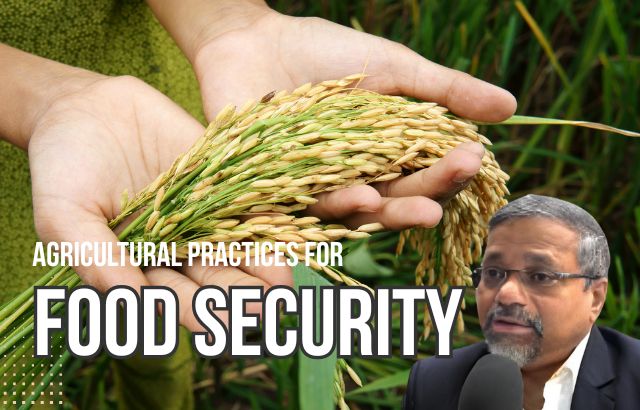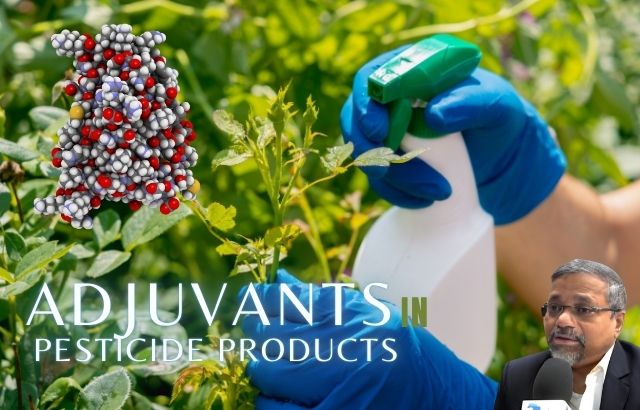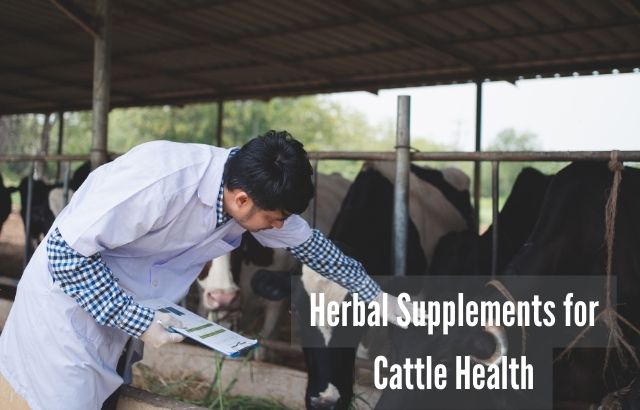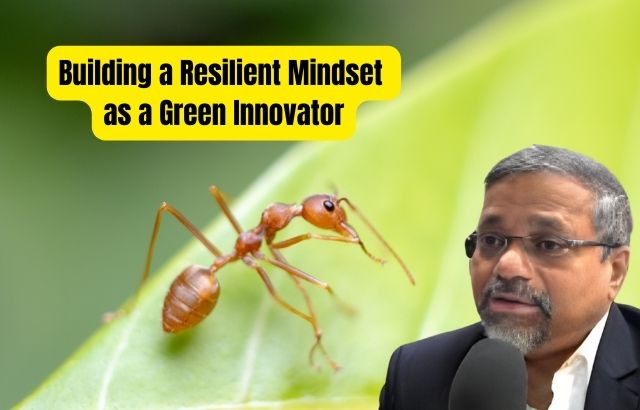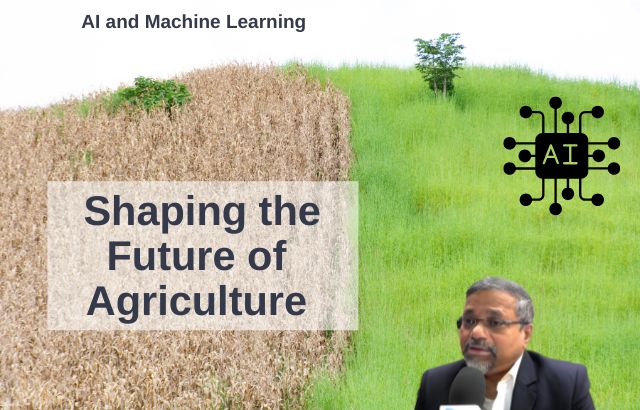Optimizing Agricultural Practices for Food Security: A Vision for the Future
By Jaiguru Kadam, Agricultural Systems Researcher
Introduction
Food security is one of the most critical challenges we face today. With global populations on the rise, climate change reshaping agricultural landscapes, and economic disparities deepening, securing an adequate and sustainable food supply is more important than ever. As an agricultural systems researcher, my work focuses on finding innovative ways to optimize farming practices, boost productivity, and improve food access, all while preserving the environment for future generations. In this blog, I will outline the role of agricultural systems research in food security, highlight the significance of green innovation, and provide guidance for students aspiring to make an impact in this field.
The Role of Agricultural Systems Research in Food Security
Agricultural systems research seeks to understand the intricate interactions between plants, animals, the environment, and human society within agricultural systems. By optimizing these interactions, we can increase food production, reduce waste, and ensure that food systems are resilient in the face of environmental and economic challenges.
Key Areas of Focus in Agricultural Systems Research:
- Improved Crop Varieties: Researchers are continuously working on developing high-yield, disease-resistant crop varieties that can withstand harsh environmental conditions such as droughts, floods, or temperature extremes.
- Soil Health and Fertility: Sustainable farming practices that maintain soil health are crucial. Research into crop rotation, cover cropping, and conservation tillage helps enhance soil structure and fertility, leading to better yields over time.
- Water Management: Water scarcity is a major concern in agriculture. Efficient irrigation systems, rainwater harvesting techniques, and water-use optimization methods are all part of the research to ensure that water resources are used effectively.
- Climate-Smart Agriculture: Climate change is a significant threat to food production. Research focuses on developing agricultural practices that can adapt to changing weather patterns, reduce greenhouse gas emissions, and increase resilience to extreme events.
- Agroecology: This approach integrates ecological principles into agricultural practices, promoting biodiversity, reducing chemical inputs, and enhancing ecosystem services that support food production.
- Post-Harvest Technologies: Reducing post-harvest losses through better storage, packaging, and transportation methods ensures that more food reaches consumers and doesn’t go to waste.
The Role of Green Innovators and Researchers

Green innovators and researchers play an essential role in shaping the future of agriculture. Their work is aimed at minimizing the environmental footprint of farming while maximizing productivity. These professionals are pioneers in developing technologies and practices that enable us to grow more food with fewer resources.
Key Contributions of Green Innovators:
- Sustainable Farming Practices: Green innovators design and implement agricultural systems that rely on renewable resources, minimize pollution, and enhance biodiversity.
- Precision Agriculture: The integration of data analytics, satellite technology, and IoT devices allows farmers to monitor crop health, soil conditions, and water usage in real-time. This precise management reduces waste and increases crop productivity.
- Alternative Energy Solutions: Solar and wind energy can be used to power irrigation systems and other farming equipment, reducing reliance on fossil fuels.
- Waste-to-Resource Technologies: Green innovators focus on turning agricultural waste into valuable resources, such as biofuels, compost, and animal feed.
- Agri-food Systems Innovations: Researchers work on improving the efficiency of food supply chains, creating more sustainable packaging, and reducing food waste from farm to table.
Guidelines for Students Aspiring to Become Agricultural Systems Researchers
For students interested in pursuing a career in agricultural systems research, here are some guidelines to help you get started and make an impact:
- Study a Relevant Field: Start by pursuing a degree in agricultural science, environmental science, or a related field. Specialize in areas such as soil science, plant biology, agroecology, or water management.
- Stay Updated on Current Trends: Agricultural research is a constantly evolving field. Keep up with the latest innovations in precision farming, climate-smart agriculture, and sustainable practices through journals, conferences, and online platforms.
- Get Hands-On Experience: Participate in internships, fieldwork, and research projects to gain practical experience in the agricultural sector. This will allow you to apply theoretical knowledge to real-world problems.
- Develop Interdisciplinary Skills: Agricultural systems research often requires knowledge of other fields such as economics, sociology, and engineering. Building a multidisciplinary skill set will enable you to approach problems from a more holistic perspective.
- Collaborate with Other Researchers: Agricultural challenges are complex and require collaborative solutions. Work with other researchers, industry professionals, and policymakers to find innovative ways to address food security issues.
- Foster Critical Thinking and Problem-Solving: The future of agriculture depends on innovative solutions to problems like climate change, resource depletion, and food distribution. As a researcher, you’ll need to think critically and outside the box to develop sustainable solutions.
Frequently Asked Questions (FAQs)

1. What is the relationship between agricultural systems and food security?
Agricultural systems research focuses on optimizing farming practices to ensure that food production is efficient, sustainable, and resilient. It plays a key role in food security by improving productivity, reducing waste, and ensuring that food reaches people in need.
2. How can green innovations help improve food security?
Green innovations, such as sustainable farming practices, precision agriculture, and alternative energy solutions, help reduce the environmental impact of farming while increasing productivity. By minimizing waste and resource usage, these innovations contribute to a more secure and sustainable food supply.
3. Why is climate-smart agriculture important for food security?
Climate-smart agriculture focuses on adapting farming practices to changing weather patterns, reducing greenhouse gas emissions, and enhancing resilience to climate extremes. This is crucial for ensuring long-term food security in the face of climate change.
4. What are the biggest challenges in agricultural systems research?
Some of the biggest challenges include addressing the impacts of climate change, improving resource efficiency, reducing food waste, and developing technologies that are accessible to smallholder farmers.
5. How can students contribute to agricultural systems research?
Students can contribute by pursuing relevant degrees, participating in research projects, and gaining hands-on experience. Additionally, they can stay updated on emerging trends, collaborate with other researchers, and develop innovative solutions to agricultural challenges.
Key Stats About Food Security and Agriculture
- Population Growth: The global population is expected to reach 9.7 billion by 2050, which will require a 60-70% increase in food production to meet demand. (UN FAO, 2017)
- Food Loss and Waste: Approximately 1/3 of the food produced worldwide is lost or wasted each year, equating to about 1.3 billion tons. (FAO, 2019)
- Climate Change Impact: Climate change could reduce global crop yields by up to 30% by 2050, especially in regions reliant on rain-fed agriculture. (Intergovernmental Panel on Climate Change, 2014)
- Sustainable Agriculture: Studies show that sustainable farming practices can increase crop yields by up to 58% in certain regions, while reducing environmental impact. (Science Advances, 2020)
Conclusion
Agricultural systems research plays an essential role in ensuring food security, especially as the world grapples with population growth, climate change, and resource limitations. Green innovators and researchers are at the forefront of developing solutions that allow us to grow more food sustainably while safeguarding our planet’s health. If you are a student interested in contributing to this field, remember that curiosity, interdisciplinary knowledge, and collaboration are key to making a meaningful impact.
By working together, we can build a future where food security is guaranteed for everyone, everywhere.

